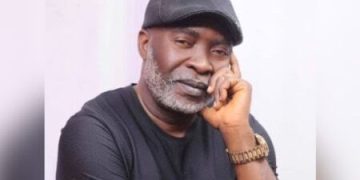Nine people – including three compounding pharmacy owners, a physician, two pharmacists, and three patient recruiters – were sentenced for their roles in years – long, multi-state scheme to defraud the Department of Labor’s Office of Workers’ Compensation Programs (OWCP) and TRICARE, the health care program for U.S. service members and their families.
The convicts were sentenced yesterday, according to the United States Justice Department’s statement on Friday.
The affected nine include: John Cruise, 52, of Houston, a former co-owner of Assurance Consolidated Pharmacy (ACP), a pharmacy located in Spring, Texas, as well as an owner of the Injured Federal Workers Advocate Association (IFWAA), an organization that purported to assist injured federal workers, was sentenced to 20 years in prison.
Also, LaShonia Johnson, 50, of Houston, a former co-owner of ACP with her husband and co-defendant Cruise, and director at IFWAA, was sentenced to 15 years in prison.
Kenny Ozoude, 48, of Houston, former owner of Compounding Solutions LLC, a Houston-based pharmacy, was sentenced to 10 years in prison.
James Don Jackson, 63, of Tyler, Texas, a medical doctor licensed in Texas, was sentenced to five years in prison.
Nirvana Hightower, 56, of Houston, a pharmacist licensed in Texas and pharmacist-in-charge at Compounding Solutions LLC, was sentenced to five years in prison.
Keith Hudson, 55, of Humble, Texas, a pharmacist licensed in Texas and pharmacist-in-charge at ACP, was sentenced to 3 years in prison.
Audra Jones, 46, of Houston, was sentenced to two years and six months in prison.
Terrance Aice, 50, of Carrollton, Texas, a patient recruiter, was sentenced to one year and six months in prison.
Sherod Johnson, 44, of Las Vegas, a patient recruiter, was sentenced to one year and six months in prison.
The convicts were found to have submitted false and fraudulent claims to the OWCP and TRICARE for prescriptions for compounded and other drugs that injured federal workers and members of the armed forces. The defendants also paid kickbacks to patients recruiters and physicians to prescribe these drugs.
The defendants chose the particular compounds and other drugs based not on the patients’ medical needs but in light of the amount of reimbursement for the drugs. The drugs were then mailed to patients, even though the patients often never requested, wanted, or needed them.
Four additional defendants (Dr. Jay Bender, Dr. Deepak Chavda, Donathan Kemp, and Naresh Jivanji) are scheduled to be sentenced on May 25.








































